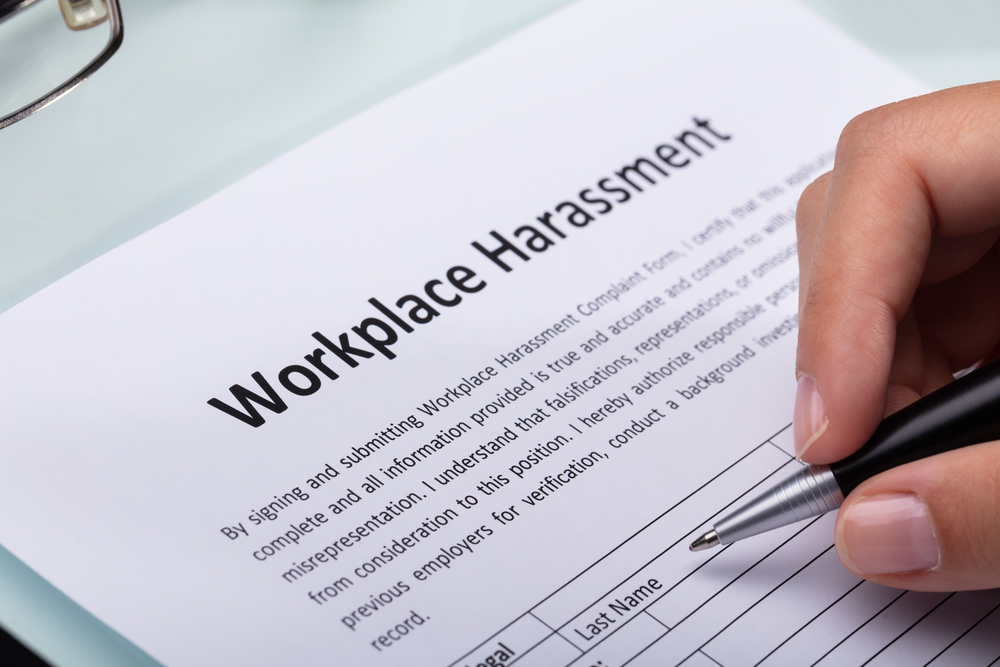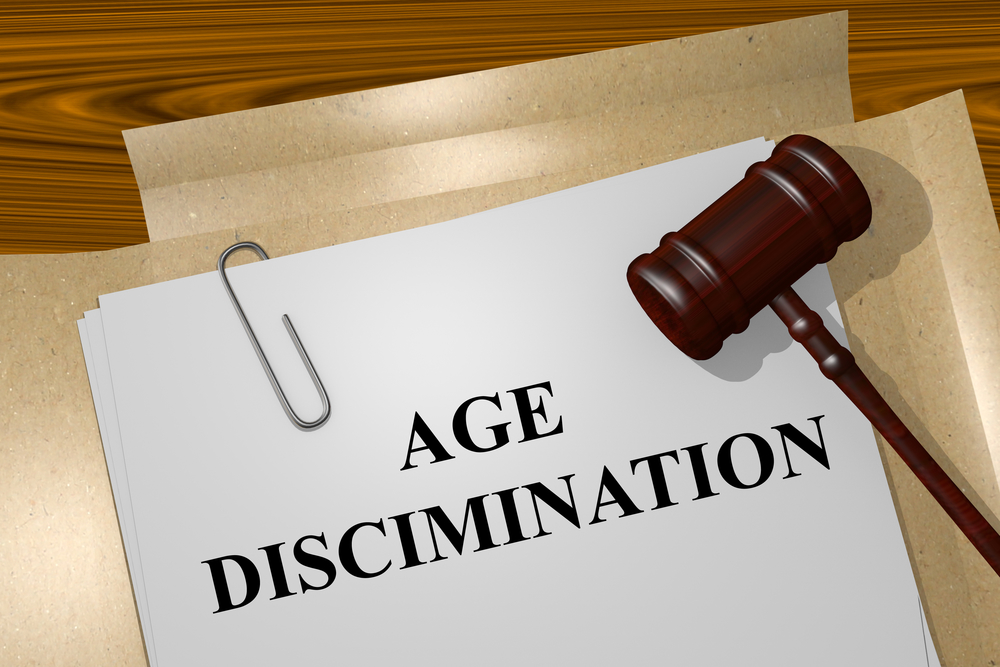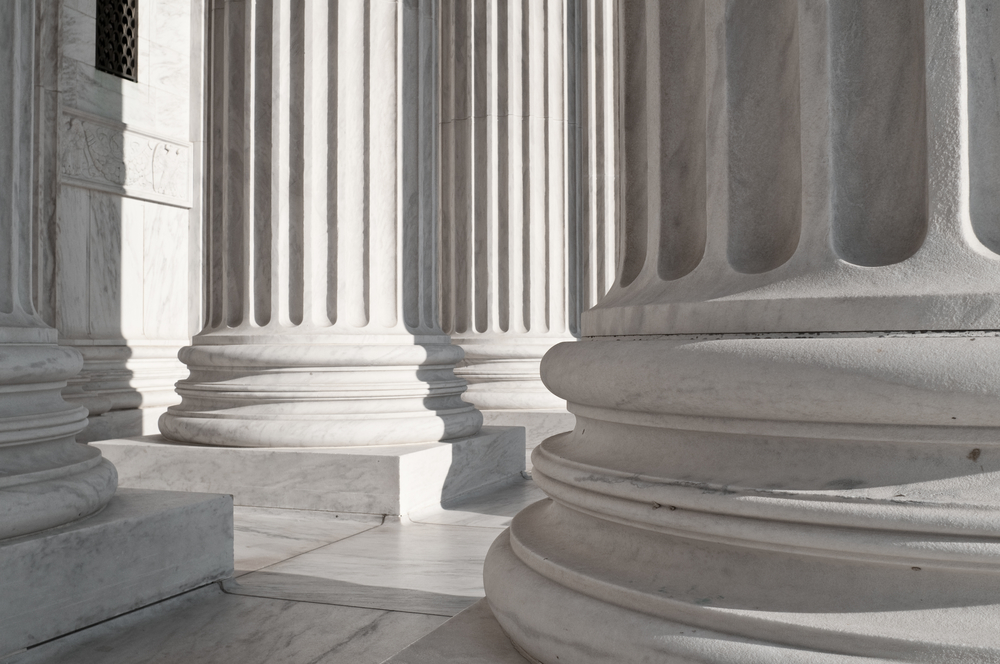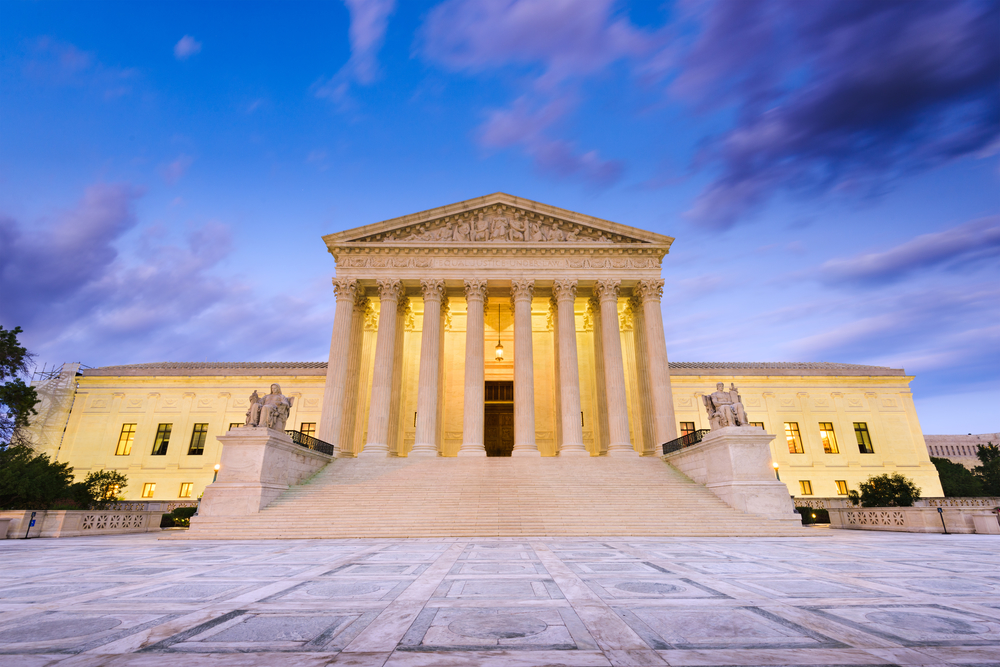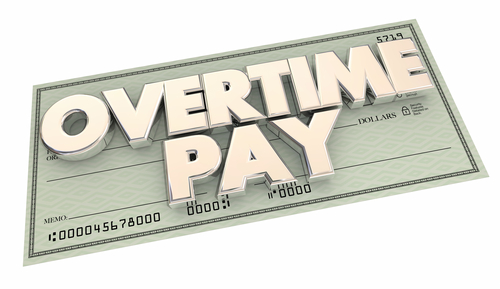 By Shaloni Pinto and Aimee Christianson
By Shaloni Pinto and Aimee Christianson
{Read in 4 minutes} With the passage of New York Senate Bill 7848A, the state will make it easier for workers to bring sexual harassment claims to court. Aimed to prevent sexual harassment in the workplace, the bill will amend the general business law to limit the coverage of mandatory arbitration clauses in relation to sexual harassment and will also amend the labor law to promote the prevention of sexual harassment.Continue reading
Babb v. Wilkie – The ADEA and Federal Employees Over Forty
 By Shaloni Pinto and Aimee Christianson
By Shaloni Pinto and Aimee Christianson
{Read in 4 minutes} Ms. Norris Babb alleges that her employer, the Department of Veterans Affairs, denied her advancement opportunities due to her age and gender, and retaliated against her after she filed complaints about the issue. If Ms. Babb was an employee in the private sector, she would have to test these allegations against the tried-and-true standards set by court precedent. Ms. Babb, however, is a federal employee, and the courts do not have a clear standard about how she can prove her age discrimination claim.
The federal-sector provision of the Age Discrimination in Employment Act of 1967 (ADEA), 29 U.S.C. §633a(a), states that any personnel actions which affect agency employees forty or older must be free from age discrimination. The “free from” wording within the law is unique to the provisions of the federal sector. The Court will answer whether a federal employee has to prove that an action was discriminatory but for her age.
Unlike public employers, private employers cannot make decisions “because of” an employee’s protected class. Both Congress and the courts have deliberated and set precedents on the standard a plaintiff must use to have a valid claim of employment discrimination. Employees in the private sector can either use the “but-for” standard or the motivating factor standard to confirm their allegations of employment discrimination. A motivating factor standard is lenient; it only requires the plaintiff to show that bias relating to their protected class influenced their employers.
Let’s examine Ms. Babb’s case to illustrate the difference between the “but-for” and “motivating factor” standard.
- If the Court holds that federal employees under the ADEA must use the “but-for” standard, then Ms. Babb will have to prove that she would have been promoted, if not for her age.
- Whereas if Ms. Babb used the motivating factor standard, she would have to prove that her age was a factor within a list of other factors that the employer used to deny her opportunities for advancement.
The “but-for” standard is stricter because Ms. Babb (as a plaintiff) must investigate the motivations of the employer and put forth an explanation that ties the other party’s decision-making to the age factor.
While the federal government has argued for the stricter “but-for” interpretation, Plaintiff Babb argues that the motivating factor standard should extend to federal employees. Now, the Court must decide whether federal employees have to abide by the stricter “but-for” standard or whether a motivating factor standard is permissible.
The circuit courts have given conflicting rulings on the issue. The DC Court of Appeals has held that the motivating factor is a valid standard for federal employees. Agencies like The Equal Employment Opportunity Commission (EEOC), charged to enforce the ADEA, have followed this precedent. Yet, other federal appeals courts like the Ninth and Eleventh Circuit have adhered to a stricter standard, holding that the “but-for” causation is the only way to allege age discrimination as a federal sector employee. Thus, this decision by the Supreme Court will resolve the conflicts among the circuit court of appeals and decide whether federal employees over forty need to adhere to a strict standard when alleging age discrimination.
Reference: Babb v. Wilkie, 2019 U.S. LEXIS 4444
SCOTUS Finds Leniency in Exhausting EEOC Administrative Filing Requirements

By: Aimee Christianson and Shaloni Pinto
{Read in 4 minutes} On June 3, 2019, the Supreme Court released their decision in the case Fort Bend County v. Davis [No. 18-125], which involves Equal Employment Opportunity Commission (EEOC) claim filing disagreements. This case involves Title VII of the Civil Rights Act of 1964 and a potential complainant’s administrative requirements with the EEOC.Continue reading
Employment Overwatch: The EEOC
 {Read in 5 minutes} In my previous post, I wrote about the impact an impending Supreme Court decision may have on employee protections — particularly LGBT employees. The issue is whether or not sex discrimination as prohibited by Title VII includes sexual orientation or gender identity protections for employees. While the Equal Employment Opportunity Commission (EEOC) has consistently found that it does, District and Circuit Courts have differed on the matter, and the Supreme Court will rule on the issue in their next term. Continue reading
{Read in 5 minutes} In my previous post, I wrote about the impact an impending Supreme Court decision may have on employee protections — particularly LGBT employees. The issue is whether or not sex discrimination as prohibited by Title VII includes sexual orientation or gender identity protections for employees. While the Equal Employment Opportunity Commission (EEOC) has consistently found that it does, District and Circuit Courts have differed on the matter, and the Supreme Court will rule on the issue in their next term. Continue reading
Interpreting Title VII
 {Read in 4 minutes} When I was in law school 20 years ago, I wrote an article on legislation before Congress referred to as the Employment Non-Discrimination Act or “ENDA.” This legislation was aimed at expanding Title VII’s coverage to specifically include sexual orientation and gender identity as protected categories not specifically provided by Title VII.
{Read in 4 minutes} When I was in law school 20 years ago, I wrote an article on legislation before Congress referred to as the Employment Non-Discrimination Act or “ENDA.” This legislation was aimed at expanding Title VII’s coverage to specifically include sexual orientation and gender identity as protected categories not specifically provided by Title VII.
Title VII is part of the original Civil Rights Act federal law enacted in 1964 which provides employees protection from discrimination because of race, national origin, and gender. Over the years, the law was expanded to include some protections for those over the age of 40 and the disabled, and is the bedrock of civil rights law in the employment environment.
To this day, the ENDA legislation has not been passed and there are no specific federal laws that prohibit discrimination based on sexual orientation or gender identity. Moreover, Title VII has not been amended to include these additional specific categories (despite other expansions). It is a sad commentary on our country, and our politics, that in 20+ years, we could not get our act together to provide the specific protections many working citizens require.
Despite this hurdle, the Equal Employment Opportunity Commission (EEOC), the watchdog agency empowered to enforce Title VII, has interpreted Title VII to protect against discrimination on account of sexual orientation and gender identity.
In fact, the EEOC has consistently interpreted any act of discrimination on account of these factors to be something that is covered by sex/gender discrimination. This means you are protected if:
- You don’t conform to sexual or gender stereotypes
- You identify as a different gender than the gender you may appear to be or were born
- You have a different sexual orientation or prefer sex that doesn’t conform with the popular notion of what a man or a woman should be
- Trans workers who don’t fit the form of what is considered to be the gender norms of society
The EEOC has been granted broad discretion to resolve disputes but unsettled legal issues still have to be resolved, by and large, in court — and federal courts have differed. Some circuits agree with the EEOC’s interpretation that sexual orientation falls under Title VII sex discrimination,while others have found that it does not.
Whenever you have circuit court splits like this, the issues become ripe for the Supreme Court — which can either agree to take up the issue or decline to take up the case(s) that address the conflict between the circuits. Recently, it was announced that the Supreme Court will take up this issue in the next term.
This is going to be a big, big decision. Obviously, we have a different Supreme Court makeup today than we did a few years ago, but this is an issue that has gained a lot of popularity and a lot of momentum legally, politically and socially.
The decision will have a huge impact on the landscape of workplace discrimination. The Supreme Court will determine whether Title VII is essentially expanded to include sexual orientation and gender identity as protected classes thereby making it the law of the land. If they find that Title VII does not provide such protection, it will permit employers, to a degree, to discriminate on account of sexual orientation and gender identity.
LGBT workers would have to turn to state and local laws for protection should the Supreme Court limit the law. Many states, such as New York, have laws that protect the LGBT community working in the state. Many states, sadly, have not extended such protections to members of the LGBT workforce.
Things take time, but this decision will be here before we know it. It is something that will have a huge impact on employee protections in the workplace — and could set back a lot of work and progress that has been made so far by the EEOC and the lower district courts who have upheld the EEOC’s interpretation of the law.
James A. Vagnini
Partner
email: jvagnini@vkvlawyers.com
Bovitz v. Wells Fargo – A Discrimination Lawsuit
{Read in 2:30 minutes}  Imagine dedicating almost 35 years to the financial industry. You work hard. You are successful. You build an impressive book of business. And yet, you are continuously hindered from reaching your potential – not because you are not qualified, because you are; not because you do not have the necessary experience, because you do. You are passed over because you are an older woman. Our client, Judith A. Bovitz, who is 69 years old, has been experiencing this for years. After every step taken to remedy the situation internally failed, she filed a Federal Lawsuit last month against Wells Fargo Advisors (“Wells Fargo” or the “Company”).Continue reading
Imagine dedicating almost 35 years to the financial industry. You work hard. You are successful. You build an impressive book of business. And yet, you are continuously hindered from reaching your potential – not because you are not qualified, because you are; not because you do not have the necessary experience, because you do. You are passed over because you are an older woman. Our client, Judith A. Bovitz, who is 69 years old, has been experiencing this for years. After every step taken to remedy the situation internally failed, she filed a Federal Lawsuit last month against Wells Fargo Advisors (“Wells Fargo” or the “Company”).Continue reading
Are Doctors Entitled to Unpaid Compensation in New York?
 {3 minutes to read} Currently pending in the New York State Supreme Court for Kings County is a class-action lawsuit styled Okeke v. Interfaith Medical Center, et al. The plaintiff, Theophilus Okeke, is a former emergency room physician at Interfaith Medical Center (the “Hospital”) located in Brooklyn, New York. He alleges that the Hospital promised him and other similarly situated physicians additional compensation of $96.00 per shift for performing medical examinations on the Hospital’s pre-admitted psychiatric patients. However, the Hospital failed to provide them with the promised compensation.Continue reading
{3 minutes to read} Currently pending in the New York State Supreme Court for Kings County is a class-action lawsuit styled Okeke v. Interfaith Medical Center, et al. The plaintiff, Theophilus Okeke, is a former emergency room physician at Interfaith Medical Center (the “Hospital”) located in Brooklyn, New York. He alleges that the Hospital promised him and other similarly situated physicians additional compensation of $96.00 per shift for performing medical examinations on the Hospital’s pre-admitted psychiatric patients. However, the Hospital failed to provide them with the promised compensation.Continue reading
Mathis v Educare Community Living Corp, et al
 {Read in 7 minutes} At the end of November, we filed a lawsuit entitled Mathis v Educare Community Living Corp, et al. Educare is a large community living corporation that does business in the United States. It’s a division of the ResCare Corporation, which provides all kinds of home health-aide services.Continue reading
{Read in 7 minutes} At the end of November, we filed a lawsuit entitled Mathis v Educare Community Living Corp, et al. Educare is a large community living corporation that does business in the United States. It’s a division of the ResCare Corporation, which provides all kinds of home health-aide services.Continue reading
Employer Discrimination by Disparate Impact

{Read in 3:30 minutes} In my last article, I discussed a pattern of discrimination in terms of the disparate impact on African Americans. But what does “disparate impact” mean? In 1971 the Supreme Court adopted the position of the Equal Employment Opportunity Commission (“EEOC”). In Griggs v. Duke Power Co. (1971), the Court invalidated an employer’s requirement that applicants have a high school diploma and/or pass aptitude tests for hire and transfer into more desirable departments where prior to the enactment of Title VII the company had restricted blacks to labor positions. Specifically, the Court stated:
The Act proscribes not only overt discrimination, but also practices that are fair in form but discriminatory in operation. The touchstone is business necessity. If an employment practice which operates to exclude [blacks] cannot be shown to be related to job performance, the practice is prohibited . . . Congress directed the thrust of the Act to the consequences of employment practices, not simply the motivation.Continue reading
Workplace Discrimination or Harassment? What Should You Do!!
 {Read in 6 minutes} Recently I posted an article reminding employees that they must file a harassment complaint within 180-300 days after the latest occurrence. While working on that blog, the question came up about what an employee should do if they are the victim of harassment.
{Read in 6 minutes} Recently I posted an article reminding employees that they must file a harassment complaint within 180-300 days after the latest occurrence. While working on that blog, the question came up about what an employee should do if they are the victim of harassment.
Report the Behavior
First and foremost, report the questionable behavior to someone in your Human Resources (HR) department. The company is not expected to have eyes and ears everywhere; internally, most of them require their employees to report incidents, and the law also requires employees to report incidents themselves.Continue reading

